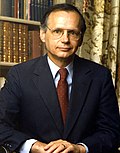| |||||||||||||||||
| |||||||||||||||||
 County results Riley: 50–60% 60–70% 70–80% Young: 50–60% | |||||||||||||||||
| |||||||||||||||||
| Elections in South Carolina |
|---|
 |
The 1978 South Carolina gubernatorial election was held on November 7, 1978 to select the governor of the state of South Carolina. Richard Riley, the Democratic nominee, defeated Republican Edward Lunn Young and became the 111th governor of South Carolina.


